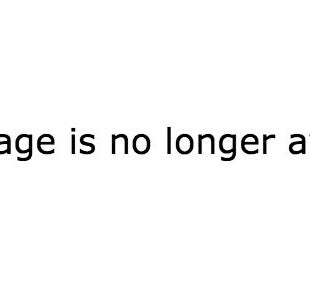1. Orson Scott Card


Where to begin? Orson Scott Card has been virulently anti-gay for decades, and there are plenty of examples in print of his homophobia. In 1990, he argued for states to keep sodomy laws on the books. In 2004, he said gays were the victims of self-loathing and child abuse. But Card’s most notorious anti-gay screed was his 2008 article in the Mormon Times, in which he wrote, “No matter how sexually attracted a man might be toward other men, or a woman toward other women, and no matter how close the bonds of affection and friendship might be within same-sex couples, there is no act of court or Congress that can make these relationships the same as the coupling between a man and a woman. This is a permanent fact of nature.” He went on to join the board of the National Organization for Marriage, the group that helped pass Proposition 8 in California.
2. T.S. Eliot


In T.S. Eliot, Anti-Semitism, and Literary Form, Anthony Julius notes the negative depiction of Jews in some of Eliot’s poems, including “Burbank with a Baedeker: Bleinstein with a Cigar”: "The rats are underneath the piles. / The Jew is underneath the lot. / Money in furs." According to Julius, "The anti-Semitism is unmistakable. It reaches out like a clear signal to the reader." And in a 1933 lecture, Eliot wrote, “What is still more important [than cultural homogeneity] is unity of religious background, and reasons of race and religion combine to make any large number of free-thinking Jews undesirable.”
3. Elizabeth Moon


In a blog post protesting the building of a new mosque near the former site of the Twin Towers, Moon made her feelings clear. She wrote, “I know–I do not dispute–that many Muslims had nothing to do with the attacks, did not approve of them, would have stopped them if they could. I do not dispute that there are moderate, even liberal, Muslims, that many Muslims have all the virtues of civilized persons and are admirable in all those ways.” She then went on to say, “I feel that I personally (and many others) lean over backwards to put up with these things, to let Muslims believe stuff that unfits them for citizenship.” As Moon put it, Muslims were asking too much to be living in a non-Muslim country.
4. Roald Dahl


Roald Dahl has been frequently accused of anti-Semitism, and with good reason: he identified as an “anti-Semite.” In a 1983 interview with the New Statesman, he said, “There is a trait in the Jewish character that does provoke animosity, maybe it's a kind of lack of generosity towards non-Jews. I mean, there's always a reason why anti-anything crops up anywhere; even a stinker like Hitler didn't just pick on them for no reason. I mean, if you and I were in a line moving towards what we knew were gas chambers, I'd rather have a go at taking one of the guards with me; but they [the Jews] were always submissive.”
5. Louis-Ferdinand Celine


After writing highly acclaimed novels, the most famous of which is Journey to the End of the Night, Louis-Ferdinand Celine turned his attention to pamphlets with fascist themes. Some were more explicit than others: his Trifles for a Massacre is relentlessly critical of Jews and what Celine perceived to be their negative influence on French society. He continued to rail against Jews while also arguing for the preservation of Aryans, saying, “We do not think enough about the protection of the white Aryan race. Now is the time to act, because tomorrow will be too late.”
6. John C. Wright


Though not as well known as Orson Scott Card, sci-fi author John C. Wright has been even more vocal about his distaste for homosexuality. After the SyFy Channel promised to be diverse in its portrayal of gay people, Wright took to LiveJournal with a shockingly homophobic post: "Why are you willing to tolerate sexual perversion but not racism? In a world with no standards, what makes a malfunction of love higher on your standard than a malfunction of hate? Is an irrational lust and longing to mimic the mating act with a sex with which one cannot mate, at its root, any more or less disconnected to reality than an irrational fear and hatred of a Negro?" He also compared being gay to bestiality, necrophilia, and the sexual abuse of children.
7. V. S. Naipaul


Novelist V. S. Naipaul, who won the 2001 Nobel Prize in Literature, has been an outspoken critic of Islam. He once argued that Muslim culture had a “calamitous effect” similar to colonialism: “To be converted you have to destroy your past, destroy your history. You have to stamp on it, you have to say 'my ancestral culture does not exist, it doesn't matter'." In 2002, Salman Rushdie denounced Naipaul and called him “a fellow traveller of fascism” who “disgraces the Nobel award.” More recently, Naipaul has been criticized for his views on women — in 2011, he said that no female writer could be his equal.
8. Dr. Seuss


Dr. Seuss' racist cartoons can partially be explained away as products of their time: during World War II, many artists drew the Japanese using broad, offensive stereotypes. But Dr. Seuss also depicted African Americans as savages. As for his defense of the anti-Japanese mentality, he said at the time, "When the Japs are planting their hatchets in our skulls, it seems like a hell of a time for us to smile and warble: 'Brothers!' It is a rather flabby battle cry." To be fair, Dr. Seuss did eventually renounce his racism after the war. Horton Hears a Who is actually an allegory for the Hiroshima bombing and occupation of Japan.
9. Edith Wharton


Depicting anti-Semitic characters does not make an author an anti-Semite, so Edith Wharton can be excused for some of the more questionable passages in The House of Mirth. Privately, however, she maintained her own bigotry. According to biographer Hermione Lee, Wharton made a deathbed proclamation that she “hated the Jews” because of their role in the crucifixion. Before that, she turned down a charity solicitation, explaining, “I’m not much interested in traveling scholarships for women…they’d much better stay home and mind the baby. Still less am I interested in scholarships for female Yids.”
10. Scott Adams


The internet has had a field day with Dilbert creator Scott Adams, who has written and quickly deleted highly inflammatory blog posts and comments. His most infamous post was directed at men's rights activists, in which he wrote, "The reality is that women are treated differently by society for exactly the same reason that children and the mentally handicapped are treated differently. It’s just easier this way for everyone." Adams also received criticism for his defense of a Tea Party email with an image of a monkey Obama as the child of two apes. He claimed it wasn't racist, because George W. Bush got called a monkey, too.
11. Kingsley Amis


The basis for Kingsley Amis’ bigotry is in his letters, which include slurs aimed at gays and Jews. He referred to gay men as “queers,” “poofters,” and “queens.” The evidence of his anti-Semitism is even more overt. In one letter, he called Jewish publishers “filthy lying profiteering bugger-the-author Yids.” And in 1992, he wrote, “It's rather like being a Jew, no matter what you do or don't do, you can't help being one." Of course, he also spoke against anti-Semitism, as in 1962 when he wrote that anti-Semitism in all its forms had to be combated.
12. Martin Amis


Kingsley Amis’ son Martin has had a notable career of his own — and his own accusations of bigotry. On the fifth anniversary of the 9/11 attacks, Amis wrote that fundamentalist Muslims had won the battle within Islam. His conclusion: "The Muslim community will have to suffer until it gets its house in order." As for how he suggested they do so, Amis advocated a restriction on Muslim travel, strip-searching for people who appeared to be Muslim, and even deportation of Muslim people.
13. Ezra Pound


Although Ezra Pound eventually renounced his own anti-Semitism, it’s impossible to ignore the radio broadcasts he made during World War II. One of his chief focuses was on the scapegoating of Jewish moneylenders, which he saw as a cause of both major world wars. He did not mince words on the radio: “You let in the Jew and the Jew rotted your empire, and you yourselves out-jewed the Jew … And the big Jew has rotted every nation he has wormed into.” Some believe his later stint in St. Elizabeth’s Hospital, an insane asylum, cured him of his anti-Semitism.
14. David Mamet


David Mamet's well-documented "conversion" to conservativism isn't bigotry, but his right-wing book The Secret Knowledge does contain some very incendiary anti-gay and anti-Muslim viewpoints. He railed against the proposed mosque near the former site of the Twin Towers, saying it would be a "cultural obscenity." He also condemned marriage equality — or as he called it, the "erosion of marriage" — which he said was a "moral affront."
